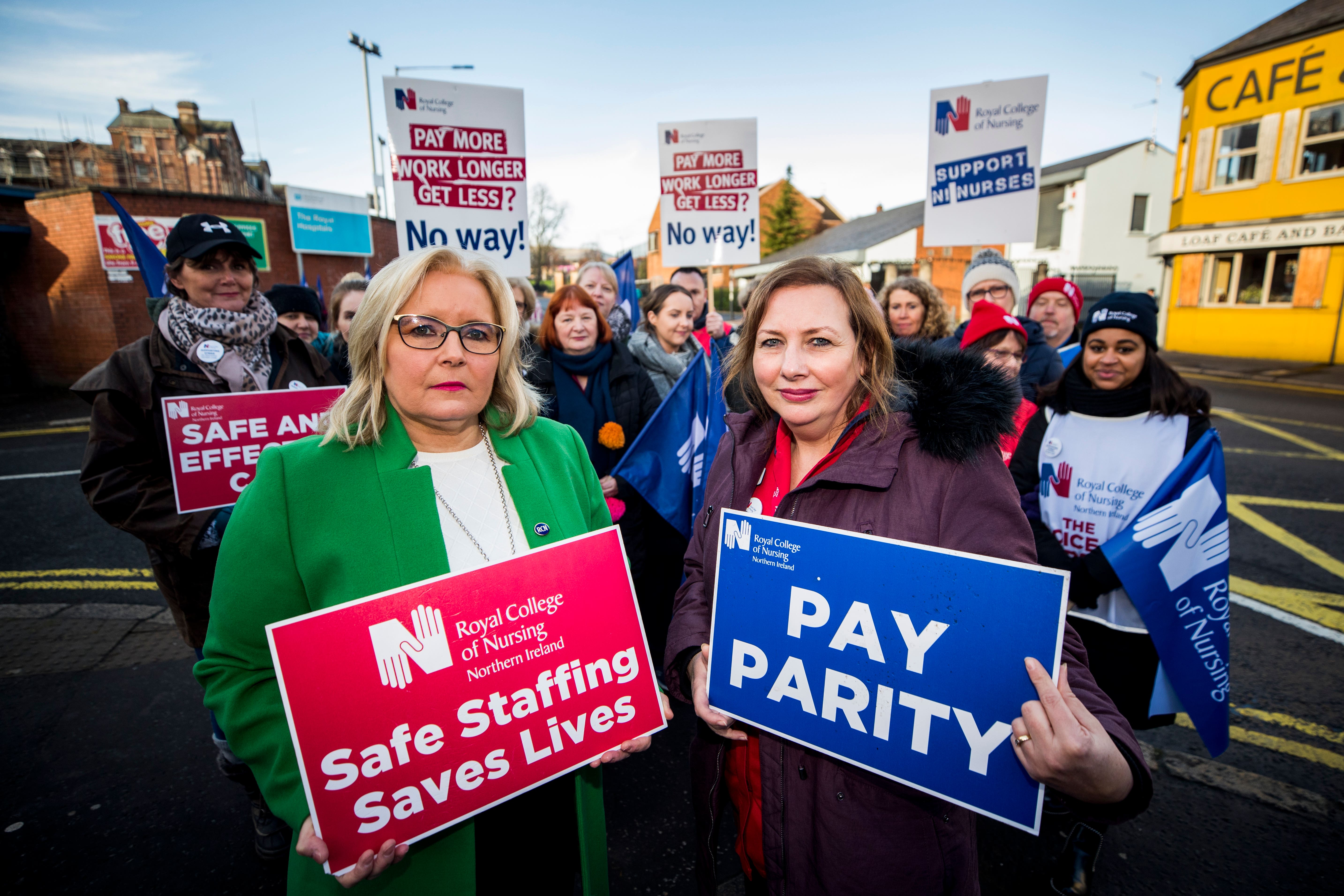Nurses ‘working one day a week for free’ after 10 years of pay cuts
‘The high costs of staff turnover suggest that staff retention is a cost-effective policy for the NHS,’ says Dr Gavan Conlon

Tens of thousands of nurses could leave the NHS if a new pay deal is not struck, according to a report which shows they are working one day a week for free.
Researchers from London Economics, commissioned by the Royal College of Nursing, have found nurses’ pay has fallen by 20 per cent over the last decade.
Based on a five-day week, an experienced nurse is being paid the same amount in 2022-23 as they would have been paid for four days of work in 2010-11.
The report found giving nurses a 5 per cent above inflation pay rise would save the NHS money as it would lead to retaining staff and less reliance on agency and international recruits.
The researchers also said around 32,000 nurses are quitting the NHS per year at least, in part because of the erosion of living standards.
The RCN is currently balloting on strike action, with around 300,000 members being asked if they are prepared to walk out.
The union is arguing for higher pay and immediate action to tackle hundreds of thousands of nursing vacancies across the country.
RCN general secretary Pat Cullen has said the government’s offer of a 3 per cent wage rise "makes a difference to a nurse’s wage of 72p an hour".
She Cullen added: “This exploitation of nursing staff cannot be tolerated any longer.
“In the pandemic, the politicians urged the public to clap for carers, but now they are wilfully ignoring nursing’s astonishing efforts and expertise.
“Ministers have stubbornly resisted the requirement to address the workforce crisis, including paying nurses fairly, instead rejecting any opportunity to act. They have taken advantage of nursing’s goodwill and steadfast determination to act in the interests of their patients.
“Patients deserve better from their politicians. Despite nursing staff working increasingly long hours and doing all they can, safe and effective care is being undermined by the failure of governments to act.”
Dr Gavan Conlon, who oversaw the research, said bringing in staff from overseas costs approximately £16,900 more annually than retaining a nurse while using agency workers is around £21,300 more per year.
NHS waiting lists have, in turn, been one of the main factors driving economic inactivity, with 700,000 individuals leaving the workforce since the beginning of the pandemic.
"The high costs of staff turnover suggest that staff retention is a cost-effective policy for the NHS," Dr Conlon said.
He said the research suggested "the economy is on its knees and will never get off its knees until we pay nurses more".
Dr Conlon and his colleagues warned there was a gap between changes to nurses’ pay in the private sector and those working in the NHS. Private sector nurses saw a decline in salaries of 1.6 per cent up to 2019 compared to 7 per cent for NHS nurses.
The report said: “While real wage growth throughout the whole of the UK economy has been relatively stagnant throughout the entirety of the last decade, our analysis reveals that a decade of below-inflation pay settlements have led to nurses’ wage growth consistently lagging behind other employees in the United Kingdom since 2011 – particularly compared to those in the private sector”
The London Economics research looked at the pay of workers under the Agenda for Change contract.
The report warned a substantial pay rise would be needed in the coming years if nurses are going to be able to maintain their living standards.
On the basis of 11.8 per cent inflation in April 2023 and 3.6 per cent in April 2024 the researchers said to restore real terms salaries nurses in England, Wales and Northern Ireland would need a pay rise of 21 per cent each year. Scottish nurses would need a pay increase of 18 per cent per year.
Earlier this year, health secretary Therese Coffey said she was confident nurses would not get a pay rise, despite the threat of strike action.
Health workers in other trade unions are also being balloted for industrial action over pay.
Unison is asking 350,000 NHS staff in England, Wales and Northern Ireland, including porters, nurses, paramedics and cleaners, to vote in favour of walking out.
This article was amended on November 14 2022. It originally stated that the report was compiled by the London School of Economics, but that was inaccurate. It was prepared by London Economics.
Subscribe to Independent Premium to bookmark this article
Want to bookmark your favourite articles and stories to read or reference later? Start your Independent Premium subscription today.

Join our commenting forum
Join thought-provoking conversations, follow other Independent readers and see their replies